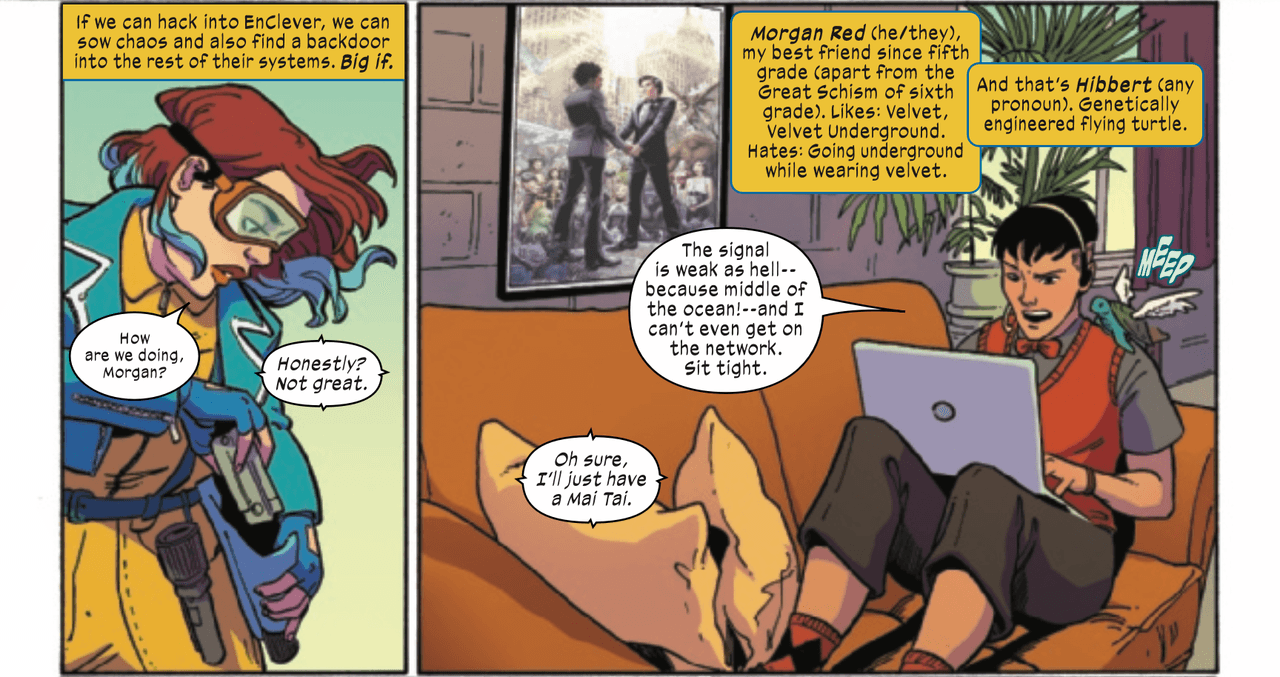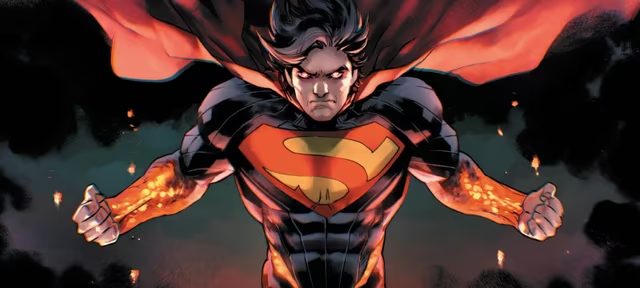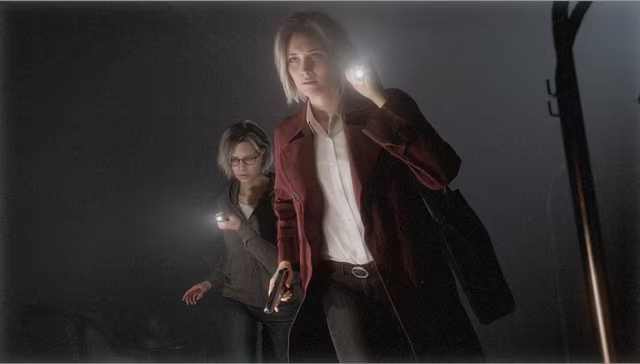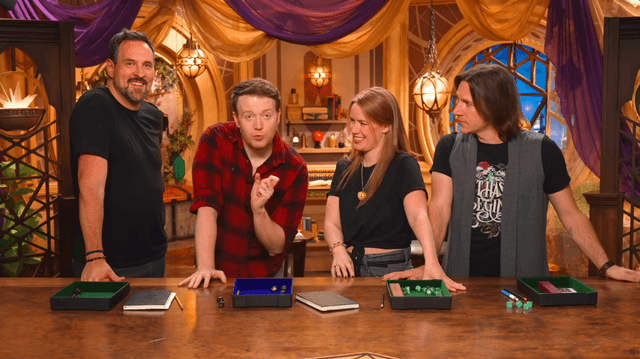If you click on a link and make a purchase we may receive a small commission. Read our editorial policy.
Why we need new trans mutants right now
Mutants, allegory, and the queer experience

Marvel's mighty mutants have long represented America's tired, poor, and huddled masses yearning to breathe free. In a country founded on freedom (well, at least freedom if you're a cis, white, land-owning male), Marvel has tried (and sometimes failed) to use the stories on the comic book page to fight for better. Like most things Marvel, the origin story of the X-Men is shrouded in myth. Some writers claim that it's a "verified" fact that Stan Lee modeled Professor X and Magneto on Martin Luther King Jr. and Malcolm X, respectively. In contrast, others argue that any similarities between the '160s civil rights icons are purely coincidental, at least until the '70s when Chris Claremont joined the X-team.

In 1982's X-Men: God Loves, Man Kills' introduction, Claremont details the inspiration behind his vision for Marvel's mutants. He writes cultural shifts in '80s America led to an increase in intolerance of racial, religious, and cultural diversity and inspired his graphic novel, which spotlights the election of Ronald Reagan and the wave of conservatism that his presidency brought. But while the huddled masses celebrated Marvel's persecution porn, conservative America was making significant in-roads at the policy level. I mean, hoping-a, even Reagan's daughter said that her father would be "horrified" if he knew what conservative America had become.
In Dobbs v. Jackson Women's Health Organization, the United States Supreme Court overturned 1973's landmark decision, Roe v. Wade, making abortion access a right. With its decision, the Court eliminated a constitutional right for the first time and took another step toward America becoming a Christian (not a Judeo-Christian) nation. In Judaism, abortion is allowed to save the pregnant woman's life or health, a religious belief at odds with the ruling (although different denominations interpret this right differently). Not only did the Court punch me in my broken uterus on June 24th, but it also shoved my First Amendment protections where the sun doesn't shine—and yours too. In June, Carson v. Makin took a massive swing at the separation of church and state when it ruled that state-funded voucher programs and tuition deductions to sectarian elementary and secondary schools are constitutional. (Once upon a time, the Establishment Clause was interpreted as absolute, mainly because James Madison believed any state-supported religious establishment could harm a well-functioning civic society).
With a conservative-stacked court and my established rights continually on rewind, it's impacted my ability to focus on the task: to introduce all you fab unicorns to the six new trans mutants introduced in June's Marvel's Voices: Pride #1. Because no matter how much I want to escape our current hellscape, it's hard to focus on writing about comic books (and I wholeheartedly believe that comics can make a difference). So, as a bigender comic book fan whose life was saved by his abortion, I'm following my heart and introducing Marvel's new trans mutants within the context of the recent Court decisions. (Hey, I don’t know about you, legal nerds,but I am missing the days when the Court issued opinions citing Macbeth or quoting Uncle Ben.)
As Pride Month ended, recent Court decisions stirred alarm across the LGBTQIA+ community. Unfortunately, those fears are well-founded. In his concurring opinion for Dobbs, Justice Clarence Thomas argued it's time to review precedents like 2003’s opinion striking down sodomy laws or 2015’s opinion legalizing same-sex marriage. So it's time to push back even harder and write stories that have the power to change some of these beliefs. So what can six fictional heroes do about America's backside (other than make it better)? It turns out that it's more than you think. With the X-Men's message of tolerance and acceptance, combined with fiction's power to shape political opinions, maybe those six trans mutants will be able to teach at least one person that there is no room in our society for intolerance and bigotry. (For True Believers who missed Marvel's Voices: Pride, you have another chance to meet these marvelous mutants when the issue arrives on Marvel Unlimited or in New Mutants #31 by Charlie Jane Anders Alberto Albuquerque, Ro Stein, and Ted Brandt, arriving this October.)
Real-Life civil rights hroes inspired the X-Men
With the introduction of Marvel's mutants, the publisher started to tell more stories of tolerance and acceptance. "Those stories have room for everyone, regardless of their race, gender, religion, or color of their skin," Lee said about the mutant heroes, introduced in 1963's X-Men by Lee, Jack Kirby, Paul Reinman, and Sam Rosen in a 2017 Marvel video. "The only things we don't have room for are hatred, intolerance, and bigotry."
The X-Men are a mutant team led by Professor Charles Xavier to fight criminals and other big bads in the Marvel Universe. Although the X-Men regularly save humanity from destruction, mutants are outcasts and hated by the unpowered humans they defend. “I loved that idea,” Lee told the Guardian in 2000. "It not only made them different, but it was a good metaphor for what was happening with the Civil Rights Movement in the country at that time." That metaphor extends to Sentinels, created to save humanity from the mutant threat—a stand-in for police brutality's impact on disenfranchised communities. As a result, the mutants live with bias and prejudice daily, and their stories turn into allegories of how society deals with oppression and bigotry. "Let’s lay it right on the line. Bigotry and racism are among the deadliest social ills plaguing the world today," Lee wrote in a December 1968 Stan’s Soapbox column. "[I]t’s totally irrational, patently insane to condemn an entire race—to despise an entire nation—to vilify an entire religion. Sooner or later, we must learn to judge each other on our own merits. Sooner or later, if a man is ever to be worthy of his destiny, we must fill our hearts with tolerance."
In 1968, Stan Lee used his Marvel "Stan's Soapbox” column to talk about the ignorance of racism. "Racism and bigotry are among the deadliest social ills plaguing the world today … Sooner or later, we must learn to judge each other on our own merits” https://t.co/3kowLk0WxT pic.twitter.com/Lw8FtxIyuk
— Ryan Parker (@TheRyanParker) November 12, 2018
Because the X-Men series encompasses themes of prejudice and bigotry, the stories are flexible enough to appeal to minorities and others on the social margins. Beginning in the '80s and continuing through today, the mutant struggle to find a haven in a world defined by systemic persecution has been adopted by LGBTQIA+ rights activists who relate to the mutant battle for acceptance. This was made explicit in 2003’a X2: X-Men United when Bobby Drake, AKA Iceman, is asked by his parents, “Have you tried not being a mutant?” It’s a question painfully familiar to many members of the queer community.
While there is a lot of talk about what mutant stories mean to individuals, relatively little has been written about how these stories impact political beliefs. So I set out to see if progressive stories can sway political opinions—and excitingly, they do! Read on, True Believers.
Fictional media and real-world beliefs: the Media Effect

Compared to the amount of research on the impact of news media on beliefs and politics, there is relatively little research on the influence of fiction in that capacity. Although paying close attention to the news can increase political knowledge, there is only a tiny percentage of the public who watches enough of it to see those benefits. Since, in today’s media environment, most people navigate away from news programming, and toward entertainment, media scholars are beginning to question whether exposure to fictional scenarios has consequences. According to 'The Implications of Fictional Media on Political Beliefs,' fiction not only introduces us to new feelings and experiences but also regularly has socially and politically relevant themes. An emerging body of research shows that fiction influences learning and beliefs in consumers of all ages. For example, in 1989, a study on fiction’s influence on political views showed that participants who watched Amerika, a fictional account of living in the US after Communist control, were more concerned about the Soviet Union. Then, an extensive body of research demonstrates that exposure to negative or positive portrayals of the criminal justice system impacts perceptions of the justice system and the death penalty, particularly among viewers who empathize with the characters. Similarly, dramas like Without a Trace and ER increase the perception that crime and healthcare are essential issues (which also influenced the participants' perceptions of President Clinton and President Bush). Notably, research shows that the way fiction frames a problem can impact participants’ attitudes on abortion in the case of incest.

Likewise, the research in 'Transgender Representation in Offline and Online Media: LGBTQ Youth Perspectives' demonstrated that portrayals of the trans experience impact a young person's identity development and lived experiences. According to Transpeople: Repudiation, Trauma, Healing by Christopher Shelley, media is frequently the medium by which people first see trans rep; thus, it is a predominant source of information on trans issues for trans and non-trans people. As a result, media portrayals (whether inaccurate or accurate) play a role in identity development by exposing people to "a new awareness of their embodied selves."
Media about the trans community also informs the general public’s attitudes. Research indicates that negative depictions of trans characters have a detrimental impact on trans people and incite fear in the non-trans population. However, more positive media depictions show trans characters as sympathetic or empathic, provide information on medical treatment, and educate the public about the violence and other social barriers the trans community experiences. Additionally, research shows that the increasing visibility of the trans community may encourage people to come out as trans to loved ones (although queer youth feel that media informs their family and friends' adverse reactions).
This research means it's vital for the media's depiction of trans people to be positive, precisely how the Marvel creators wrote the six new trans mutants in Marvel's Voices: Pride #1. Without further adieu, here is everything you want to know about the new trans mutants introduced last week. And y'all, as a queer community, we must come together and stop taking each other down. It's time for us to shout at the top of our lungs and stamp our feet loudly to demand our rights are upheld, and our stories are told because that's the only way the rest of the system will pay attention to our small percentage of the population. So let's encourage Marvel to keep publishing stories like those in Marvel's Voices Pride #1, where being trans is normalized.
Mutants, allegory, and the queer experience
Marvel’s second annual Pride Month issue, Marvel's Voices: Pride #1, established the Matt Baker House LGBTQIA+ Youth Center in Ridgewood, Queens, as the location of the support group for superpowered trans teens “Supertrans,” run by Dennis Dunphy, AKA D-Man. (By the way, Matt Baker is the first known Black artist to find success in comics.) The story not only introduces an important support option for trans youth, the LGBTQ Center, but it also has positive depictions of trans teens—two things essential to trans stories that positively impact society.
In the story by Grace Freud, Scott B. Henderson, Lee Townsend, and Brittany Peer, 'LGBT-D,' the Matt Baker House support group also introduces Marvel readers to four new trans heroes: Pity Girl, Aphelion, Good Arson, and Faceshopper. Later in the anthology, two more new trans characters are introduced: Shela Sexton, AKA Escapade, and Morgan Red, who debut as supervillain trans characters in 'Permanent Sleepover' by Charlie Jane Anders, Ro Stein, Ted Brandt, Tamra Bonvillain, and Naseem Jamina. In a society that doesn't have trans folx's backs, depicting queer people holding positions of power (even as an X-Men trainee) can impact public perception of the queer community.

Nora, AKA Pity Girl (she/her)
Pity Girl can hypnotize people with sad stories, and I bet she has A LOT of sad stories as a trans woman in 2022 (it's been an awful year for trans rights even before the Supreme Court opinion). She is a fan of jewelry and carries a book labeled “Volume One,” most likely a recording of her sad tales (since we see her writing in it after the story). When the Sinister Syndicate attacks the support group, Pity Girl uses her abilities against Lady Octopus, who is affected. When her powers are activated, the lines of Pity Girl’s word balloon and text turn from black to purple. In Pity Girl’s second appearance in the story 'Permanent Sleepover,' she is seen wearing a Howard the Duck sweatshirt with the caption, “Evelyn Waughhhh!!!!” Not only does this emphasize Pity Girl’s literary bent, but it also demonstrates that she has excellent taste in Marvel characters.
Reed, AKA Aphelion (they/them)
Reed is a nonbinary teen with the power to freeze things, thanks to the empty universe inside them. Their suit gives a glimpse of the pocket universe within and includes goggles, although it’s unclear whether these are practical or just cool looking. They are also very conscious of the fact that the support group at the Matt Baker House is a “safe space,” using the battle cry "Transistors, tolerate!" when the Sinister Syndicate arrives. In their second appearance in 'Permanent Sleepover,' Reed laments that they are sick of being "hated, feared, and fetishized," wishing they could instead be "loved and feared."

Rex Ridley, AKA Good Arson (he/him)
Rex Ridley looks like Guy Fieri, with his spiked bleached blonde hair, Gatorz wraparound, red-tinted sunglasses, and flame print camp shirt. He can light stuff on fire with his mind. When his powers are activated in 'LGBT-D,' it erupts from his hands. He is attending the support group after burning down his parents' apartment.
We haven't learned much else about Good Arson yet, but I hope to see his Guy Fieri-inspired origin story one day. And I get it, Rex; Alan Alda is part of my trans journey. I like to think of my style as M*A*S*H-up of Hawkeye and Tom Holland's post-Zendaya streetwear.
Soph, AKA Faceshopper (she/her)
Soph, AKA Faceshopper, can transform into anyone if she thinks they are cool, and the first person we see her transform into is D-Man after he saves her life. Soph's name is a nod to Grammy-nominated trans hyperpop musician SOPHIE, who died in 2021. In addition, Faceshopper, is not only a nod to Soph's shapeshifting ability but also one of SOPHIE's most famous songs, 'Faceshopping.' And then, there is the outfit Soph wears to the group meeting: a ribbed turtleneck dress in black forest green and a black blazer reminiscent of the musician's appearance at the 2019 Grammy Awards.
Shela Sexton, AKA Escapade (she/her)
In 'Permanent Sleepover,' Marvel introduced mutant Shela Sexton, AKA Escapade, and her best friend, Morgan Red. Like many LGBTQIA+ people, Shela's found family is a recurring theme in Shela's life, starting with Morgan's parents inviting her to come live with them after her mutant-accepting parents kick her out for coming out as trans. Escapade's a cool weirdo who's profoundly loyal to the surrogate family.
Escapade can instantly switch powers, attributes, locations, or possessions with anyone standing within seven feet of her (and so far, her weapons of choice are rainbow dust and gravity dice that generate a random gravity field). With Morgan, Escapade became a professional thief, targeting corrupt organizations and individuals.
Morgan Red (he/they)
Morgan has been best friends with Shela since fifth grade, bonding over their shared secret of being transgender mutants. As kids, Morgan and Shela dreamed of becoming the world's best supervillains by only hurting bad people and helping good people. Morgan's mutant power is the ability to transchocolify—because any word is better if you add 'trans' to it—any organic material into chocolate. In addition to liking Velvet Underground, they enjoy being Escapade's person in the chair and provide remote technical support on Escapade's burglaries. The duo is accompanied by Hibbert, a genetically engineered flying turtle with wings (who would probably get along great with Lockheed, the "dragon").
If you want to learn more about how the Media Effect impacts minority communities, read Hailey E. Hoffman's academic article, 'The Media Effect and the Implications for Racial Minority Groups.' It is an excellent introduction to how media exposure impacts societal attitudes surrounding race and gender.
Follow Popverse for upcoming event coverage and news
Find out how we conduct our review by reading our review policy
Let Popverse be your tour guide through the wilderness of pop culture
Sign in and let us help you find your new favorite thing.















Comments
Want to join the discussion? Please activate your account first.
Visit Reedpop ID if you need to resend the confirmation email.